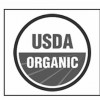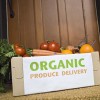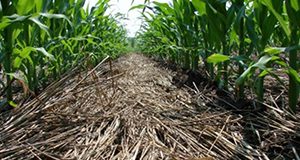Organic farming is one of the fastest-growing segments of the agricultural industry in the United States and in Florida. Conservation tillage is often employed to reduce soil erosion, improve physical and biological properties of soil, and increase water use efficiency. This 5-page article aims to provide recommendations to row crop farmers who wish to implement conservation tillage practices during their transition to a certified organic system. Written by D. L. Wright, J. Moyer, D. Treadwell, I. M. Small, and S. George, and published by the UF/IFAS Agronomy Department, revised November 2020.
https://edis.ifas.ufl.edu/ag246
Tag: Organic Farming
Introduction to Organic Crop Production
 Organic farming can generally be described as a method of production that utilizes non-synthetic inputs and emphasizes biological and ecological process to improve soil quality, manage soil fertility, and optimize pest management. This 16-page fact sheet is written for commercial producers who are transitioning to or beginning organic production. Written by D.D. Treadwell, and published by the UF Department of Horticultural Sciences, April 2014.
Organic farming can generally be described as a method of production that utilizes non-synthetic inputs and emphasizes biological and ecological process to improve soil quality, manage soil fertility, and optimize pest management. This 16-page fact sheet is written for commercial producers who are transitioning to or beginning organic production. Written by D.D. Treadwell, and published by the UF Department of Horticultural Sciences, April 2014.
http://edis.ifas.ufl.edu/cv118
Should We Go Organic? (FAR8048/FM357)
 “Choosing what to feed my family is no easy task. In addition to seeking meals that can be ready for our harried schedules and differing tastes, today when I go to the grocery store I also have to make decisions about whether or not to buy organically grown or raised foods. Many consumers worry that pesticides used in conventionally grown produce may increase our risk of cancer. But is this concern based in reality?” This 2-page fact sheet was written by Kate Welch, Linda Bobroff, and Amy Simonne, and published by the UF Department of Family Youth and Community Sciences, August 2012.
“Choosing what to feed my family is no easy task. In addition to seeking meals that can be ready for our harried schedules and differing tastes, today when I go to the grocery store I also have to make decisions about whether or not to buy organically grown or raised foods. Many consumers worry that pesticides used in conventionally grown produce may increase our risk of cancer. But is this concern based in reality?” This 2-page fact sheet was written by Kate Welch, Linda Bobroff, and Amy Simonne, and published by the UF Department of Family Youth and Community Sciences, August 2012.
http://edis.ifas.ufl.edu/fm357
